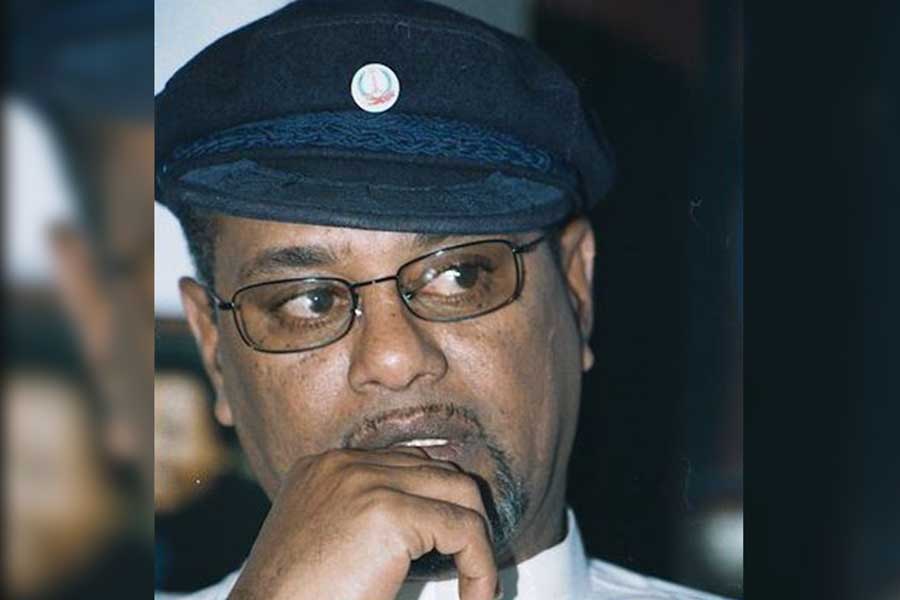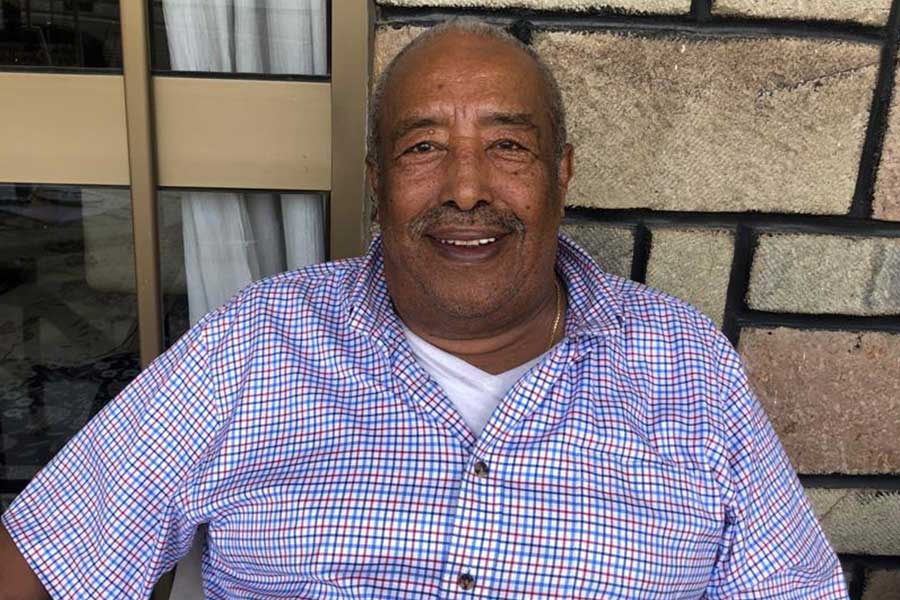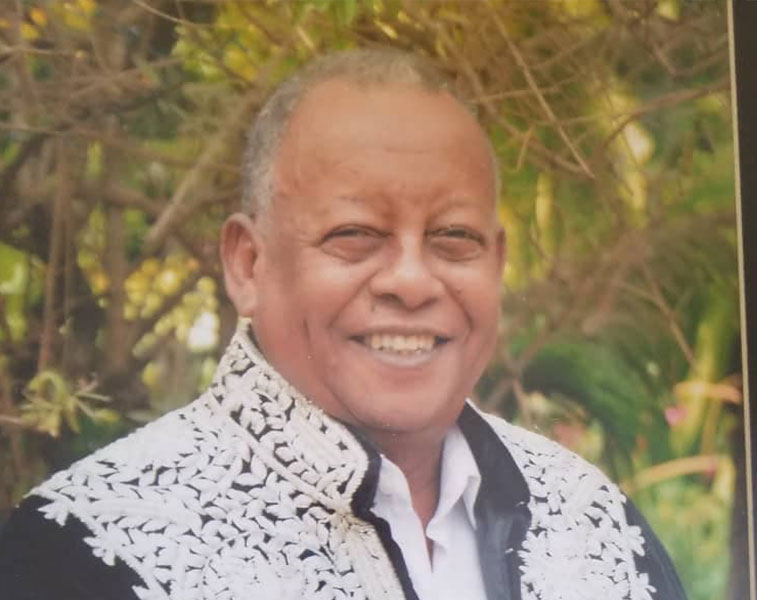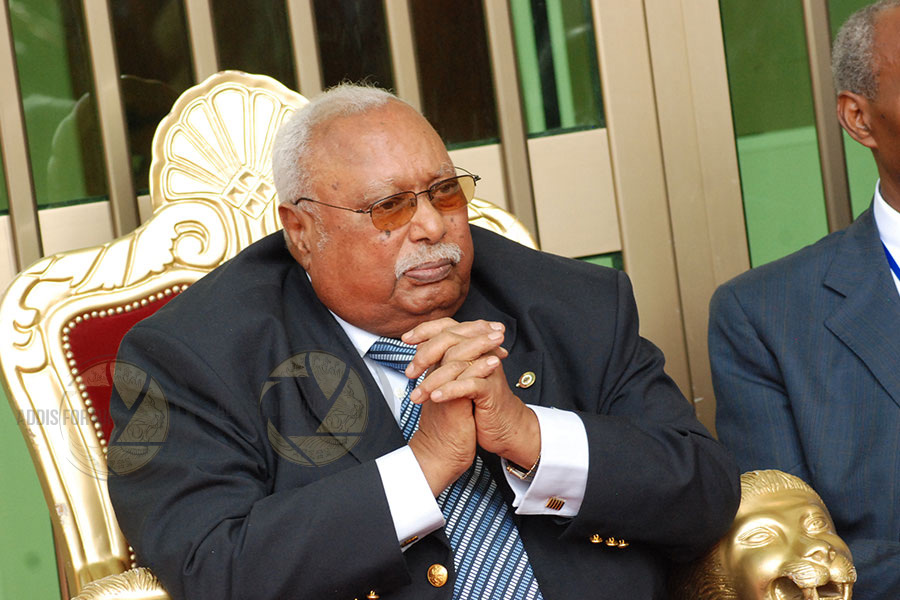
Obituary | Nov 29,2020
Debebe Eshetu, one of Ethiopia’s most prominent actors, was a novice giddily looking up to Woubshet Workalemahu when the two were working together on short films for Ethiopian television some four decades ago. At the state-owned broadcaster, the only in the country at the time, there was no equipment to record the half-hour television dramas that Debebe and Woubshet were hired to make. Live broadcast was the only choice, so they had to rehearse the entire performance repeatedly.
One night after a rehearsal gone late, Woubshet, as he often did, volunteered to give seven of the cast and crew, including Debebe, a ride home. There was only one problem. His car was a Fiat 850, one of the smallest cars ever mass manufactured. It could carry four people, five if everyone in the back was willing to be uncomfortable.
Somehow, all seven of them squeezed in the car. It was so crowded that a police officer noticed, despite it being night time, and stopped them as they were crossing Mexico Roundabout.
“The police seemed very annoyed as he stopped us and was surely going to call the traffic police on us,” says Debebe.
Woubshet would have none of this. He jumped out of the car, ran to the police with open arms, kissed him on both cheeks and said loudly, “Thank God you’re here.”
Woubshet Workalemahu
“‘We've been rehearsing for tomorrow’s live broadcast, and it's because you guys are here that we feel so safe,” recounts Debebe of what Woubshet said. “By the time Woubshet was finished chatting him up, the police officer was promising he would notify the traffic police so they would not give us trouble as we went on.”
To Debebe, the only thing that was even more gripping than Woubshet's witticisms and charisma was his impeccable sense of style. He used to advise that everyone prepare what they planned to wear the night before, never in the morning.
“He used to tell us that we were artists and should dress as such,” says Debebe.
The stylish and witty friend, actor, poet, script writer and the oldest and perhaps most popular name in advertising passed away two weeks ago. He had been battling cancer for three years and was in the United States undergoing treatment until his ailment became terminal and he returned to his country. He was in bed for about a month before he passed away at the age of 82.
Born in 1938, his career started in Hager Fiqir Theatre, where he wrote and performed in several plays, such as Eenena 27 Geredocheand Sost le Ande, roughly translating to “Me and My 27 Maids” and “Three to One.”
Woubshet Workalemahu
Before joining the advertising business, he worked in the public relations departments of Philips Electronics - which gave him an opportunity to study PR-related courses in the Netherlands - and the National Lottery Administration. It was while working in the latter institution that he struck up a friendship with Dawit Yifru, renowned keyboardist and music arranger.
“Dramatist, poet and actor, he was above all so easy to get along with,” says Dawit of his friend, who he knew for almost a century. “He was anecdotal and knew a great deal of history.”
Like Debede, he attests to how neat Woubshet looked all of the time. In fact, it is one of the things he cannot forget.
“The way he dressed, his height and facial structure reminded me a great deal of Haile Selassie,” says Dawit.
To the popular mind, Woubshet is draped in an Ethiopian cloak. The cloak he wore was actually given to Woubshet by the Emperor, which he portrayed in a play a Hager Fiker Theatre,for a piece of poetry he penned, according to Leul Getaneh, his nephew. The cloak is embroidered with golden thread traditionally representative of high status in some of the country's cultures. Woubshet was very proud of it.
“He considered being well-dressed representative of his respect for others,” says Leul. “Every day before he went to bed, he would carefully prepare what he would wear the next day. He would even iron out his socks.”
As much attention to detail he attached to how he dressed, he felt the same about work, according to his family and friends. He left his biggest mark on the advertisement industry. Working for the National Lottery, he famously packed a sack with dried grass, sprinkled a few Birr bills on top to make it look like it was brimming with money and marched along Churchill Road with a donkey carrying the sack. He told people that all they have to do to make the contents of the sack theirs was to buy a lottery ticket.
In the mid-1970s, he established the first advertising agency in Ethiopia, Anbessa. Under this company, 52,000 ads were produced and Woubshet himself wrote over 100 jingles. He has also served in leadership and membership roles in a number of governmental, diplomatic, sports and humanitarian initiatives and institutions. He served for many years as the president of the national and Addis Abeba’s chamber of commerce.
“He loved his work almost as much as he loved his children,” says Luel.
Raised by a single mother for the most part himself, Woubshet was a single father to his two sons ever since they turned five and eight. As adults, the children joined their mother, Worqiye Abeba, in the United States.
Reminiscent of his wit, he referred to himself and his two sons as the “three bachelors."
PUBLISHED ON
Mar 14,2020 [ VOL
20 , NO
1037]

Obituary | Nov 29,2020

Fortune News | Oct 26,2019

Obituary | Jul 13,2020

Obituary |

Fortune News | Oct 23,2018

Dec 22 , 2024 . By TIZITA SHEWAFERAW
Charged with transforming colossal state-owned enterprises into modern and competitiv...

Aug 18 , 2024 . By AKSAH ITALO
Although predictable Yonas Zerihun's job in the ride-hailing service is not immune to...

Jul 28 , 2024 . By TIZITA SHEWAFERAW
Unhabitual, perhaps too many, Samuel Gebreyohannes, 38, used to occasionally enjoy a couple of beers at breakfast. However, he recently swit...

Jul 13 , 2024 . By AKSAH ITALO
Investors who rely on tractors, trucks, and field vehicles for commuting, transporting commodities, and f...

Jul 5 , 2025
Six years ago, Ethiopia was the darling of international liberal commentators. A year...

Jun 28 , 2025
Meseret Damtie, the assertive auditor general, has never been shy about naming names...

Jun 21 , 2025
A well-worn adage says, “Budget is not destiny, but it is direction.” Examining t...

Jun 14 , 2025
Yet again, the Horn of Africa is bracing for trouble. A region already frayed by wars...